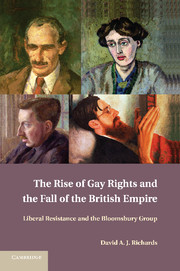 The Rise of Gay Rights and the Fall of the British Empire
The Rise of Gay Rights and the Fall of the British Empire 2 - Imperialism and Patriarchy
Published online by Cambridge University Press: 05 June 2014
Summary
A patriarchal conception of political authority flourished in the imperial systems that have historically dominated human culture, a fact noted by Francis Fukuyama in his recent book. Imperialism is marked by two defining features: first, it began to self-identify in terms of the rule of its emperor, or the linguistic equivalent of such a ruler; second, “it began to issue orders to formerly autonomous states in the certainty that those orders would be obeyed.”
Various forms of Western imperialism, which arose self-consciously in the wake of the decline and fall of the Roman Empire, drew both vocabulary (kaiser in German and czar in Russian mean “caesar”) and a sense of their legitimate place in history from Rome, often measuring their achievements and their sense of looming threats from the study of Roman expansion and decline. It is thus no accident that generations of British imperialists, including Winston Churchill, closely read and studied Gibbon's multivolume The Decline and Fall of the Roman Empire. Western imperialisms also shared a common Augustinian patriarchal Christianity, albeit sometimes violently at odds over their quite different Catholic (Roman and Orthodox) and Protestant interpretations of the relationship of their Christianity to the legitimation of political authority. Perhaps the most extreme form of such imperialism was the theocratic Orthodox Catholic absolutism of the Russian czar over both church and state, at war not only with the competing imperialisms of the Ottoman Turks but of Protestant Britain.
- Type
- Chapter
- Information
- The Rise of Gay Rights and the Fall of the British EmpireLiberal Resistance and the Bloomsbury Group, pp. 40 - 96Publisher: Cambridge University PressPrint publication year: 2013


